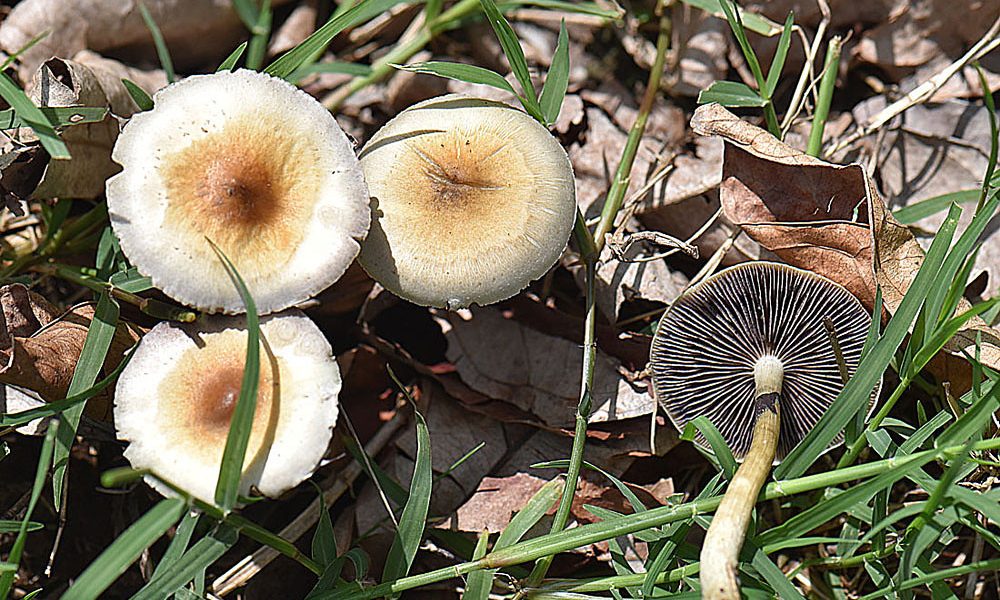A strong majority of Americans support legalizing and regulating psychedelics therapy, and most back federally decriminalizing substances like MDMA and psilocybin, according to a new poll.
The survey from Breakthrough Bulletin comes amid a wave of psychedelics reform efforts taking place in legislatures across the country.
What they found is that a majority of likely voters (60 percent) are in favor of giving adults “access to regulated psychedelic therapy.” That includes 72 percent of Democrats, 58 percent of independents and a 49 percent plurality of Republicans.
Support for the reform shot up after people were given additional context about emerging research into the benefits of psychedelics for mental health conditions like post-traumatic stress disorder (PTSD), depression and anxiety, as well as the Food and Drug Administration’s (FDA) decision to designate psilocybin and MDMA as “breakthrough therapies.”
With that information, 68 percent of respondents said they back reform to allow psychedelics therapy in regulated settings. There was majority support across all party identities: Democrats (72 percent), Republicans (67 percent) and independents (64 percent).
That represents a particularly significant 18 percentage point jump for GOP respondents.
Then the pollster provided information about the opposition perspective, noting that “these substances are known to cause people to hallucinate and enter an altered state of reality, which can be dangerous—both to the person receiving the treatment and those who administer it.”
Even with that added context, the majority support for reform held strong at 58 percent overall. That includes 76 percent of Democrats, 53 percent of independents and a 42 percent plurality of Republicans.
The survey further asked about a prospective federal policy change, pointing out that simple possession of MDMA and psilocybin can result in a felony conviction despite evidence of their efficacy in mental health treatment.
Respondents were asked whether they would “support or oppose a federal law to remove criminal penalties for adults for personal possession of substances like psilocybin and MDMA,” and 53 percent said that they’d support it.
There was a similar partisan divide in that support, with 64 percent of Democrats, 55 percent of independents and 42 percent of Republicans—again, a plurality—backing the policy change.
Additionally, the poll asked whether people would be more or less likely to vote for a lawmaker in their upcoming election if they supported legislation to “give adults over 21 access to regulated psilocybin therapy to address the mental health crisis.”
Fifty-eight percent of respondents said that they’d be more likely to back a lawmaker who advanced that reform, including 71 percent of Democrats, 56 percent of independents and 48 percent of Republicans.
The survey involved interviews with 1,704 likely voters from February 26-March 3.
This is one of few national polls on psychedelics issues that have been released amid the growing reform movement. Other surveys focusing on specific jurisdictions like Colorado and Washington, D.C. have similarly revealed public interest in changing laws around the substances, but the national sentiment hasn’t been comprehensively studied.
That said, a YouGov poll from last year did find that a majority of Americans back research into the therapeutic benefits of substances like MDMA for military service members.
Meanwhile, lawmakers in states with wildly diverging political makeups have dedicated significant time to advancing psychedelics reform this session. Bills to address the issue have been introduced in more than a dozen states so far this year.
Last week, for example, a Minnesota House committee took up a bill to establish a task force to study and advise on the potential legalization of psychedelics like psilocybin, MDMA and ibogaine.
Texas lawmakers recently filed a series of new bills aimed at promoting and expanding psychedelics research in the state.
This month, the Oklahoma House of Representatives approved a bill to promote research into the therapeutic potential of psilocybin while providing legal protections against prosecution for people with eligible conditions who possess the psychedelic.
Also this month, a Rhode Island House committee held a hearing on a bill that would remove penalties for the use and possession of psilocybin and allow the home cultivation of psychedelic mushrooms for personal use.
The Washington State Senate recently passed a bill to create a task force supporting research into psilocybin and develop a pathway for legal access to the psychedelic.
Hawaii’s Senate and House passed three psychedelics research bills earlier this month.
Missouri lawmakers also cleared a GOP-led bill in committee this month to facilitate research into the therapeutic potential of certain psychedelics such as psilocybin, MDMA and ketamine.
Those are just a few examples of the types of reforms that legislators across the country are considering this session.
An analysis published in an American Medical Association journal last year concluded that a majority of states will legalize psychedelics by 2037, based on statistical modeling of policy trends.
Justice Department Says Ending Gun Ban For Medical Marijuana Patients Would Have ‘Wide-Ranging Consequences’ In New Federal Court Brief
Photo courtesy of Dick Culbert.
Read the full article here

